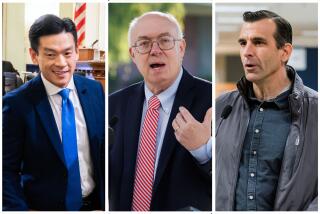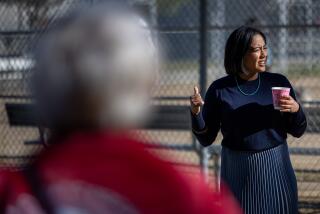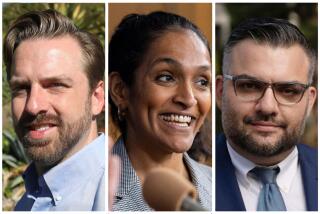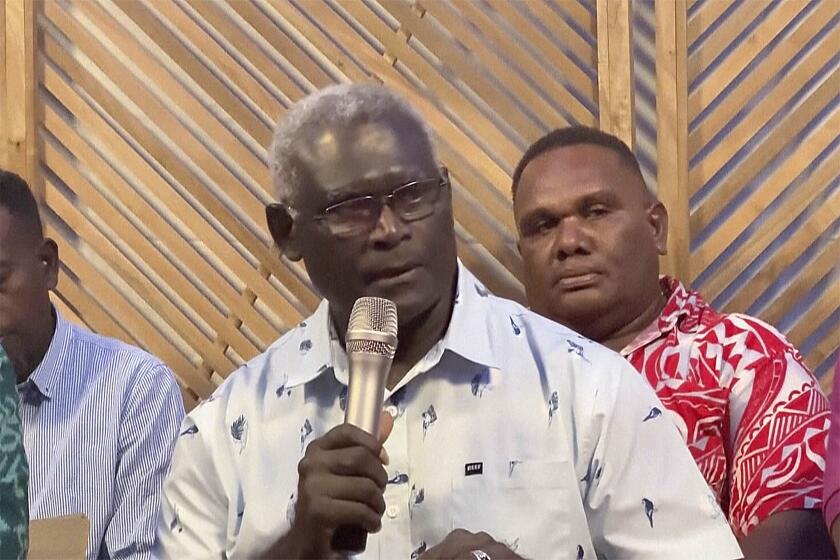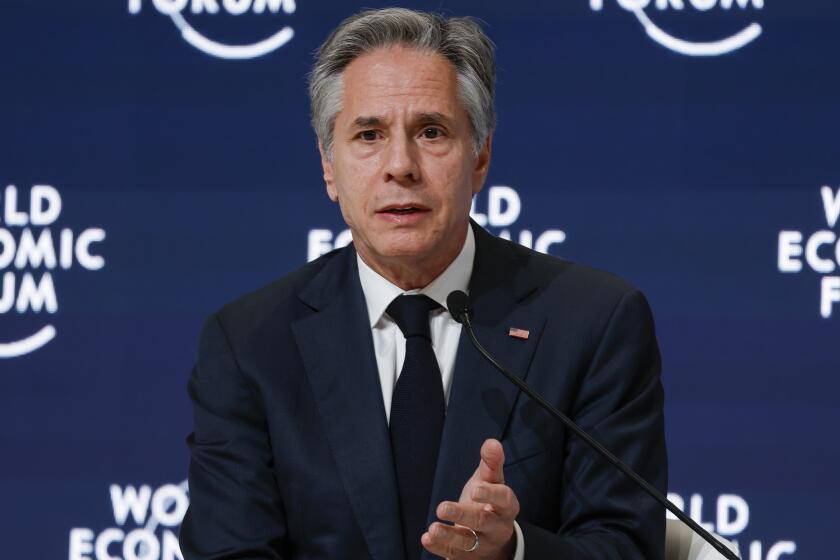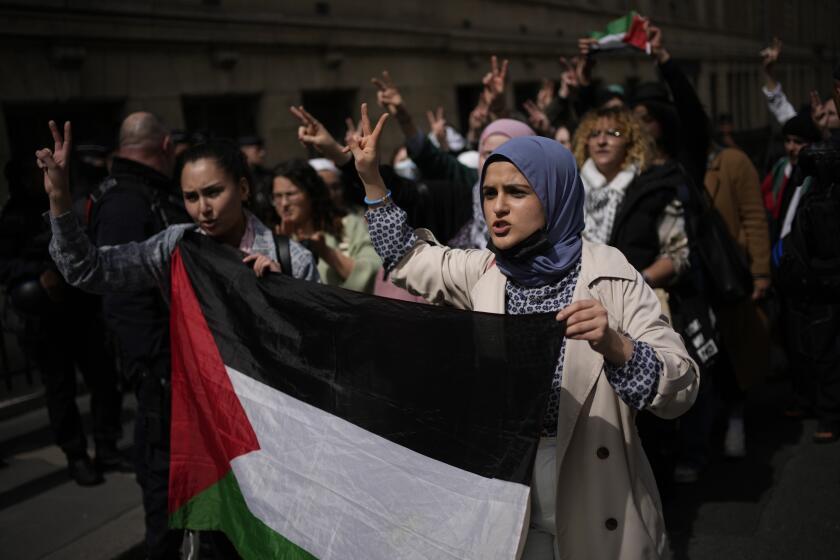Chicago Mayor Rahm Emanuel fails to win enough votes to avoid runoff
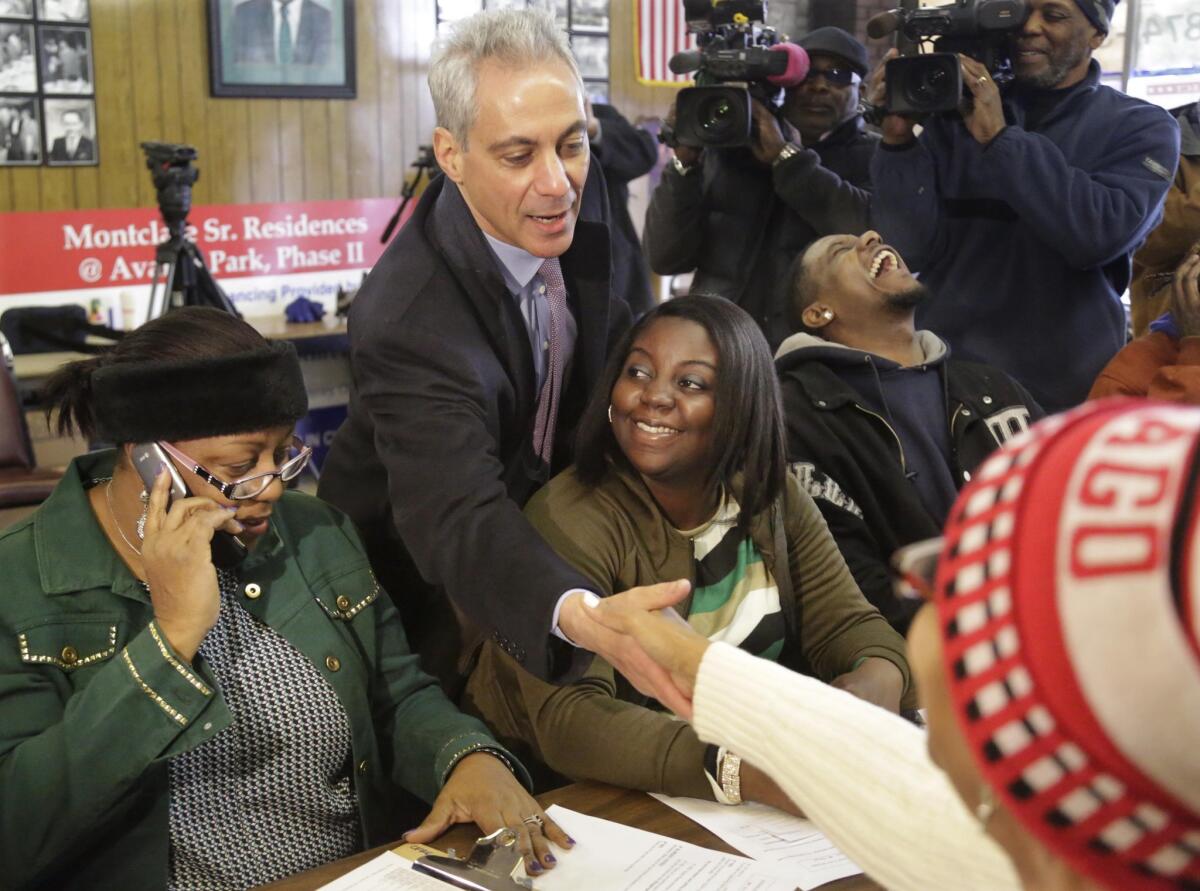
Mayor Rahm Emanuel is headed to a politically risky runoff election in April after failing to reach the 50% benchmark he needed to clinch a second term Tuesday night.
Emanuel conceded he would fall short.
“We have come a long way and we have a little further to go,” he told supporters at a union hall.
He said he had moved Chicago in the right direction. “But we have to be honest,” he said. “We have a lot more work to do.”
With 83.7% of precincts reporting, Emanuel had 45.5% to 33.9% for challenger Jesus “Chuy” Garcia, a Cook County commissioner. The two will campaign for six more weeks, and Chicago voters will get their final say on April 7.
Some Emanuel supporters booed the mention of Garcia’s name, but Emanuel rebuked them. “No, no. He’s a good man,” Emanuel said.
Emanuel, who was President Obama’s chief of staff until leaving to run for mayor, used a multimillion-dollar campaign war chest to try to rebuild his image and rebound from widespread voter disenchantment. Being forced into a runoff represents a personal and political setback, given his massive fundraising advantage against a field of far lesser-known opponents.
The low enthusiasm of the mayoral campaign was symbolized by what city election officials said was low voter turnout, on a day that was cold with occasional bouts of snow. City projections estimated the turnout would be comparable to the record low of 33% in 2007, when then-Mayor Richard M. Daley won his sixth and final term.
An April runoff between the top two finishers could sharply change the political dynamics. Anti-Emanuel voters could coalesce around Garcia, who also could go back to campaign donors and argue he’s got momentum. While a stream of ads and Emanuel fundraising are expected to continue, the runoff also puts more pressure on the mayor to engage Garcia one-on-one, rather than largely dismissing the field of challengers as Emanuel did during five debates.
Emanuel amassed a campaign fund of more than $16 million, with nearly half of that dedicated to 16 broadcast television ads that aimed to shave off the sharp edge of the mayor’s persona as well as criticisms over school closings, crime and neighborhood economic development that marked his first four years.
Garcia, a former alderman and state lawmaker, was a late entry into the race. He won the Chicago Teachers Union’s endorsement after its president, Karen Lewis, ended a potential bid for mayor after being diagnosed with brain cancer.
The next mayor, inaugurated in May, faces a series of severe economic challenges ahead.
The city must find $550 million more to put into police and fire pensions by year’s end — and Emanuel did not rule out a boost in city property taxes to cover the cost after using a 911 emergency phone tax hike last year to increase payments into other city pension funds.
Additionally, organized labor has sued the city over agreements that Emanuel had made with some city unions in an effort to reduce Chicago’s pension liability.
The next mayor also faces the prospect of continuing city budget shortfalls as new Republican Gov. Bruce Rauner has proposed a state budget that would take $135 million in income tax money away from Chicago.
More to Read
Start your day right
Sign up for Essential California for news, features and recommendations from the L.A. Times and beyond in your inbox six days a week.
You may occasionally receive promotional content from the Los Angeles Times.
